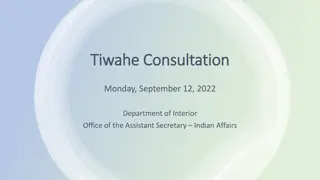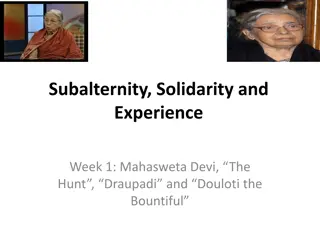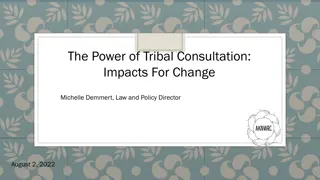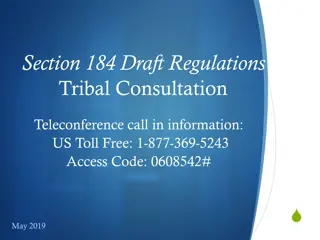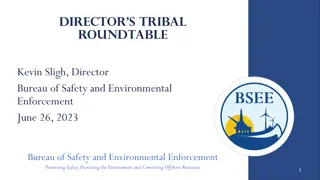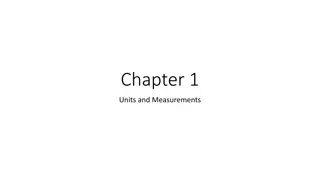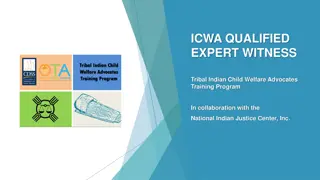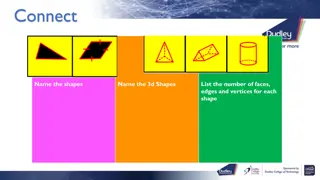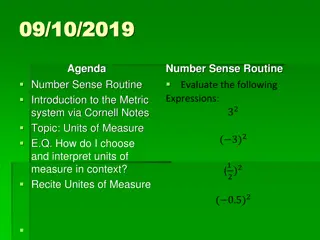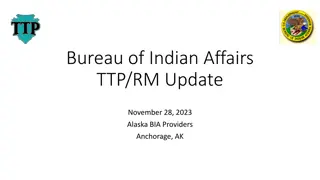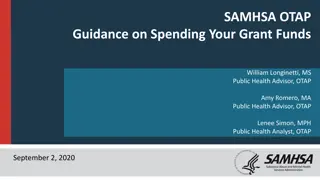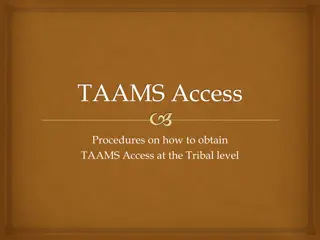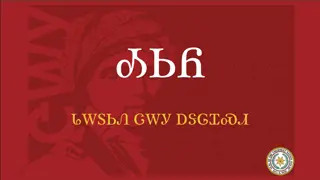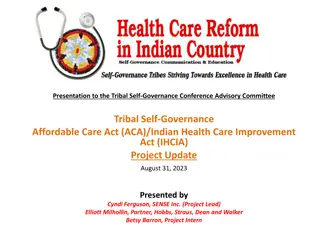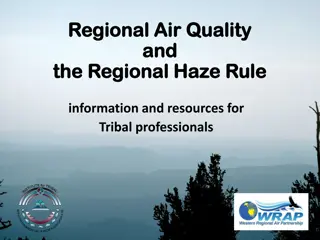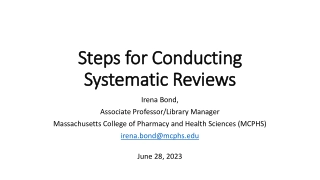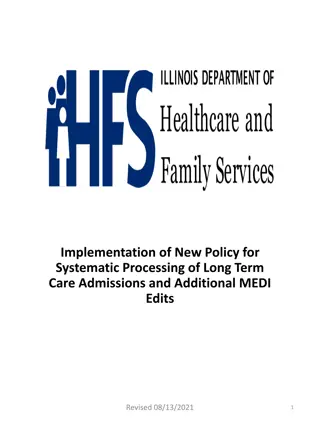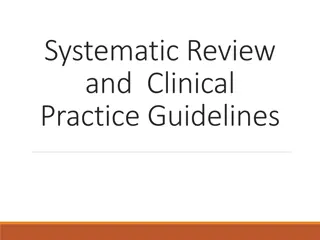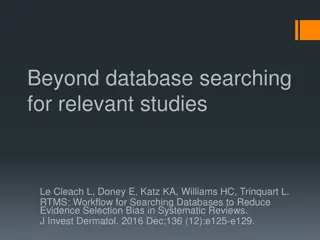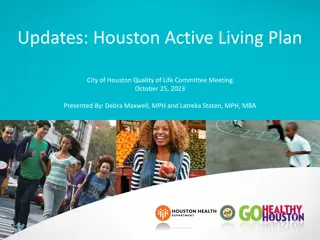Systematic Active Case Finding in Tribal TB Units of Visakhapatnam
High burden of TB in tribal population due to difficult terrain and living conditions. Systematic active case finding efforts implemented by local partners and health agencies to address the issue. Health camps, sputum collection at Shandy camps, and awareness activities conducted to detect TB cases early and provide timely treatment.
Download Presentation

Please find below an Image/Link to download the presentation.
The content on the website is provided AS IS for your information and personal use only. It may not be sold, licensed, or shared on other websites without obtaining consent from the author. Download presentation by click this link. If you encounter any issues during the download, it is possible that the publisher has removed the file from their server.
E N D
Presentation Transcript
Systematic Active Case Finding Efforts in Tribal TB Units of Visakhapatnam, Andhra Pradesh Implementing partners: State National Health Mission, State Revised National TB Control Programme, District Revised National TB Control Programme, Integrated Tribal Development Agency (ITDA), Local Community Leaders
Introduction Burden of TB is high in Tribal population Difficult geographic terrain makes it difficult for them to approach Health facilities frequently. Transmission is likely to be higher because of Their living habits in close clusters or huddled together in small huts Malnourishment and lowered immunity Passive case finding approach may miss many TB cases or diagnose them late.
TB BURDEN IN TRIBAL TUs - VISAKHAPATNAM 2015(Jan-Dec) 2016(Jan-Dec) 2017(Jan-June) Cases/ lakh/ann um Cases/ lakh/ann um Cases/ lakh/ann um Total Cases Total Cases Total Cases District 6076 133 6086 137 2901 130 Tribal 1106 169 1172 175 562 170
Program Description: India mainly uses passive case finding to detect tuberculosis (TB) patients through the Revised National Tuberculosis Control Programme (RNTCP). Systematic Active case finding activities can bring TB services closer to the Tribal community. The Tribal communities gather in large numbers at certain specific places like weekly markets, Bus stations, patient-health care provider meetings, Gram sabhas, monthly religious rituals etc. Eight Tribal TB Units having 14 Designated Microscopy Centers with a population of 686846 (15.36% of total District population of 4470909) were selected to conduct Active TB case finding activities. Since March 2015 Health camps to screen patients with symptoms of TB are being organized systematically once every month on fixed day at one of the specific places. Medical Officer, PHC STS ( Senior Treatment Supervisor) , Laboratory Technician and a paramedical staff participate in setting up Sputum Collection Centers in the Shandy camps Patients with symptoms are encouraged to give spot sputum sample at these centres and asked to report with early morning sample at the nearest Health facility If the patient does not reach the health facility with second sample, health workers will visit the home of the patient to ensure his sample is collected. IEC activities & House to house awareness is carried out throughout the year by the Health staff about these camps
SPUTUM COLLECTION AT SHANDY CAMPS MO/LT/ Parameidcal attend health camps organized in these Shandy Camps every month PHI/DMC Shandy Camp Spot sample taken to 1. STS attend one of these camps selected randomly every month as prescheduled Patients attending these camps are screened for TB symptoms Spot sputum samples are collected from the symptomatics . Patient asked to report to nearest health facility with early morning sputum sample the next day Morning sample House to house awareness and IEC activities conducted through out the year by health staff 2. 3. If patient does not bring early morning sample 4. DOTS Doctor examines patient Health staff visit patients home and collect sample LT examined LT examines samples TB Confirmed
STATISTICAL INFORMATION 2017-18(Apr-June 17) 2015-16 ( 8 Sputum Collection Camps) 2016-17 (8 Sputum Collection Camps) ( 2 Sputum Collection Camps) S.No TU Name No. of Sputum samples collected 52 Positives identified No. of Sputum samples collected Positives identified No. of Sputum samples collected Positives identified 1 Paderu 4 92 8 24 1 2 Hukumpeta 41 3 65 6 15 0 3 Munchingput 47 3 58 7 13 0 4 GK Veedhi 27 2 45 4 10 0 5 Araku 40 3 79 9 31 7 6 Ananthagiri 35 3 54 6 13 3 7 KD Peta 54 5 72 7 37 0 8 Chinthapalli 60 5 81 7 54 49 4 28 (Cat I 24 Cat II 04) (Cat I 47 Cat II 07) 15 Total 356 546 192 (Cat 1 15) Year 2015(Jan- Dec) After Sputum Collection Camps were held] (A) Year 2017(Jan- June) After Sputum Collection Camps were held (C) Year 2014 (Jan- Dec)Before Sputum Collection Camps were held Year 2016(Jan- Dec) After Sputum Collection Camps were held (B) Of (A) Number of cases from the Camps Of (B) Number of cases from the Camps Of (C) Number of cases from the Camps Indicator Persons with TB symptoms tested in all Microscopy centres in the District TB cases confirmed in the District 37750 38864 356 44807 546 16180 192 4025 4063 28 4258 54 1842 15
Programme Outcome TB case detection rates are moderately increased. The number of sputum samples collected and sputum positive TB cases detected amongst them are increasing steadily every month as is seen in the table and have nearly doubled in 2016- 17 as compared with cases in 2015-16. The Shandy camps have also spread awareness and more patients with TB symptoms (Presumptive TB cases) are attending the Health facility to confirm TB diagnosis
Financial Implications There are no additional financial implications. Programme budget for IEC activities are used for the awareness campaigns and for organizing the camps. Scalability This can be scaled up to include all Tribal /agency areas in the State or Nation since data shows that such efforts incur no additional expenses and can contribute towards a moderate increase in TB cases. The existing health system and programme staff with support of ITDA can implement this. Budget plan for ITDA may include this head of expenses specifically to improve supporting activities, strengthen and ensure that this scheme is continued without interruptions as a part of tribal area financial plan
Concluding Remarks This programme activity shows that an innovative, community-based, education/case finding intervention increased the number of TB cases detected and treated TB diagnostic and treatment services are brought closer to vulnerable communities Boosted awareness about RNTCP services. More frequent camps regularly at all Shandy Camps can increase TB case detection





